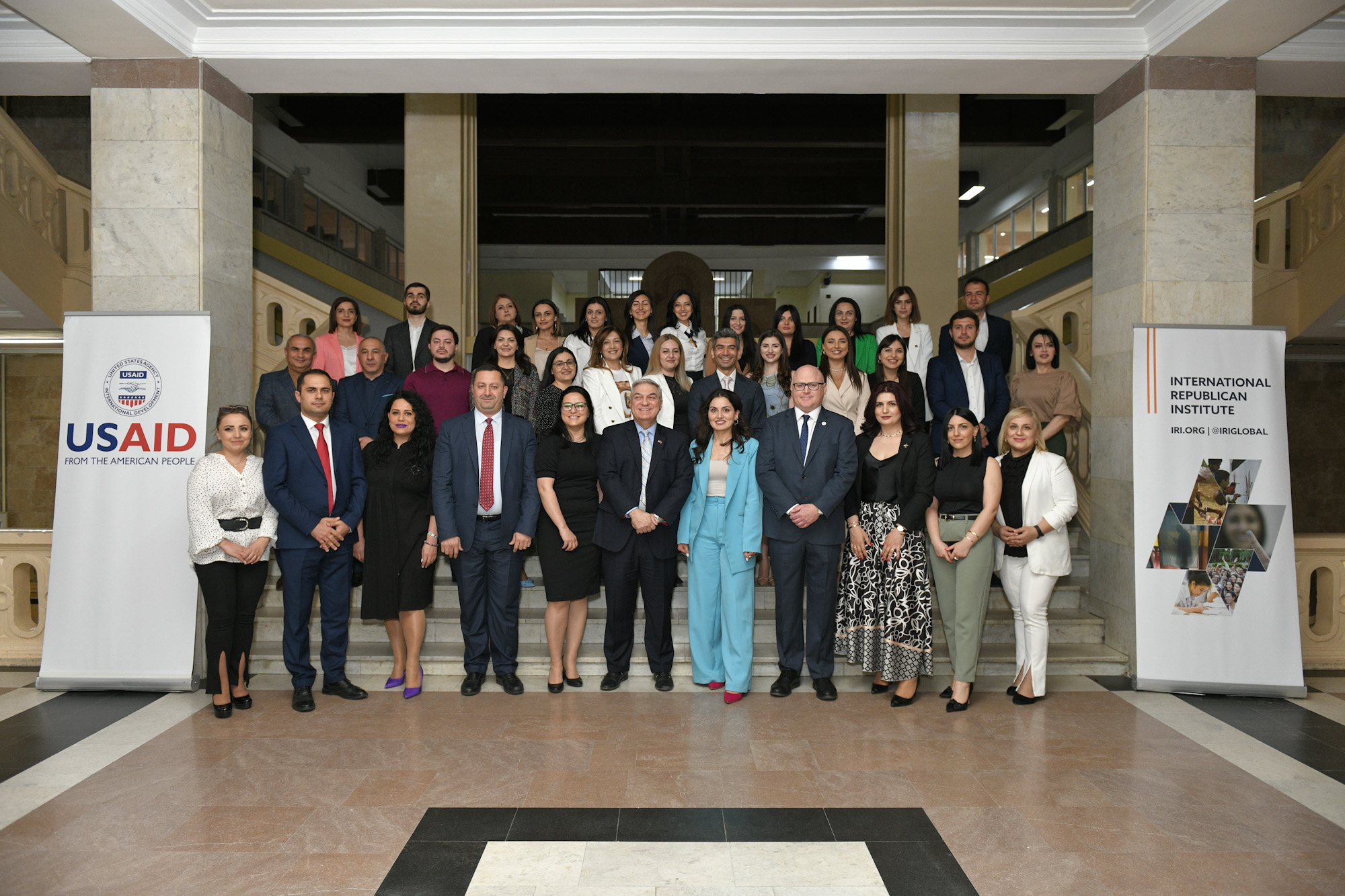In the wake of the 2018 Velvet Revolution, Armenia embarked on a path of democratic reforms to satisfy the growing demand for change. Towards this goal, the government has implemented numerous initiatives to advance democratic norms, curb corruption, and increase transparency. However, based on the March 2023 nationwide poll conducted by the International Republican Institute (IRI), the Armenian public is not well informed about several key reform areas. For example, 64% of respondents failed to identify any successful policy implemented by the government in the six months preceding the poll’s publication. Similarly, 78% could not name any anti-corruption reforms undertaken by the government.
This communication gap between the Civil Contract government and the people has been perpetuated due to underdeveloped communication mechanisms between the government and the public regarding national policies and initiatives. The government’s public outreach still lacks a unified message and transparency about the progress of the reforms. Instead of initiating an open and direct dialogue, citizens and media representatives often receive generic statements and contradictory messages from governmental entities and high-ranking officials. These shortcomings hinder the government from informing public discourse and views towards new initiatives. On a larger scale, this lack of coherent communication fosters distrust and diminishes public support, thereby creating a vulnerability to disinformation spread by both external and domestic actors.
The Power of Strategic Communication
The great challenge for the Armenian government, therefore, is regaining the public trust necessary for the success of the reform process. Audience-oriented communication requires not only raising awareness, but also driving social transformation, facilitating behavioral change, and fostering consensus-building and a sense of ownership over the reforms. Comprehensively doing so requires a united message in the government with the involvement of all stakeholders and representatives.
The Government Spokesperson School, initiated by IRI in 2022 in cooperation with the Information and PR Center of the Prime Minister’s Staff of Armenia (IPRC), stands as a vital platform for capacity development among spokespersons as it is the first ever targeted training program designed for spokespersons and communication officials in Armenia. The spokespersons’ position in the government’s communication apparatus requires them to bridge the divide between government bodies and the public. During their time at the school, participants engage in theoretical and practical trainings on different aspects of communication, such as media relations, PR campaigns and strategic communication, social media management and cyber security, public speaking, and crisis communication. However, beyond capacity-building, a primary achievement of the school is the formation of a vibrant community of practice, in which IRI provides ongoing guidance and mentorship even after participants have graduated. Additionally, the school has played a leading role in facilitating a cooperative platform between Armenian state institutions, resulting in a high level of government support for the school’s
integration into formal spokesperson training and the establishment of a communication professionals’ network. To that end, in 2023 IRI signed an agreement with Yerevan State University and the IPRC to work towards the institutionalization of the program, furthering the school’s potential for sustained work.
The participants of Government Spokesperson School have played a significant role in improving communications between the public and the government since its inception. The government representatives responsible for strategic communications have acknowledged the expertise of the graduates as they demonstrate their skills in government offices, regarding them as top-tier professional spokespersons and committing to furthering their empowerment and involvement in the reform process.
As IRI continues to provide logistical and training support, the Armenian government and people must also drive the change to ensure successful implementation of reforms. By guaranteeing government accountability and citizen access to information, Armenia can push further democratic reform with the assurance of a stable and transparent internal communication mechanism, leading to more sustainable and citizen-conscious progress.
Top